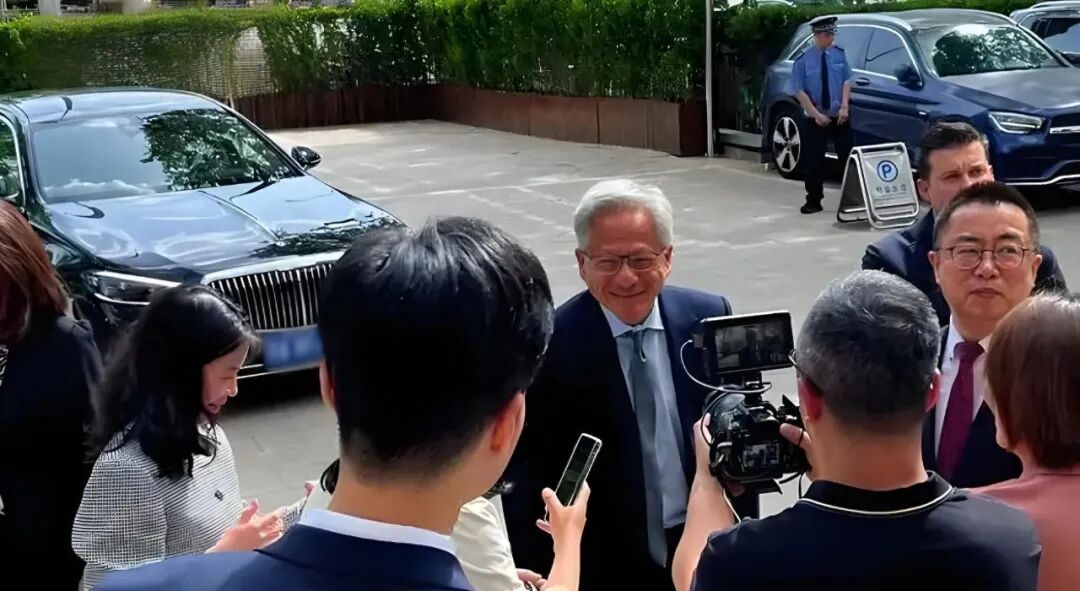According to the New York Times, the Trump administration has once again adjusted its sanctions against China, prohibiting Nvidia from exporting its latest AI chips designed specifically for the Chinese market. This policy change has sparked strong dissatisfaction among US companies. Domestic chip manufacturers in the US are concerned that if AI chips cannot enter the Chinese market, it will provide development space for the local Chinese chip industry, helping it grow into a significant force in the global chip supply chain.
Shortly before the sanctions were intensified, Nvidia CEO Jensen Huang visited China and held industry talks with the president of the China Council for the Promotion of International Trade. Huang clearly stated that the Chinese market is crucial, and Nvidia hopes to collaborate with the Chinese market to jointly promote technological development. However, the US government continues to strengthen export controls, which has significantly impacted both US chip companies and the Chinese market. Nvidia has stated that it will launch compliant products for the Chinese market.

Looking back at the early US regulations on AI chips, they mainly focused on limiting the number of transistors and the manufacturing process, with Nvidia’s A100 and H100 chips being among those restricted. In response to the regulations, Nvidia has weakened the performance and process of its chips, developing AI computing chips like the A800 and H800. These chips are on the edge of US restrictions and are specifically for the Chinese market. Additionally, Huang has lobbied the US government twice, calling for a relaxation of sanctions against China. He understands the importance of the Chinese market to US chip companies; losing this market would not only affect the economic interests of US companies but also compel Chinese companies to develop their own AI chip technologies.
To continue supplying AI chips to the Chinese market, Nvidia has launched the latest H20 chip, which was released in 2023 and is a weakened version of the H100 chip. Compared to the full version H100, the H20 chip has 41% fewer GPU cores and its computing performance is only 15% of that of the H100, representing Nvidia’s triple downgrade design plan for the Chinese market. Despite the significant reduction in chip performance, which will not allow Chinese companies to reach the hardware level of US companies, and while complying with export regulations, the US government still prohibited Nvidia from exporting the H20 chip to the Chinese market on April 15, citing “national and economic security interests.”
The day after the US announced the latest restrictions, there was significant turmoil in the US tech stock market. Companies like AMD, Nvidia, Intel, and TSMC saw varying degrees of stock price declines. According to the Wall Street Journal, the tightening of sanctions by the US government against the Chinese market will prevent US companies from establishing effective cooperation with China, resulting in losses of billions of dollars in revenue, which poses immense pressure on US chip companies.
Alan, head of the Washington-based think tank’s AI center, pointed out that once US AI chips lose market share in China, local Chinese companies will quickly fill the gap, accelerating the development of their own AI chips, further narrowing the gap between China and the US in the AI hardware field. Before the new sanctions took effect, Nvidia’s H20 chip was approved for sale in the Chinese market, with expected sales exceeding $16 billion. After the implementation of the new sanctions, the cooperation license for the H20 chip with the Chinese market has become a distant prospect, and Nvidia will also lose this substantial revenue.
Meanwhile, these funds are expected to be used by Chinese companies for talent development and technology research, helping Chinese chip companies attract global talent and push manufacturing technology to achieve higher breakthroughs. Alan’s technical analysis indicates that there is currently a performance gap between US and Chinese companies in AI chips, with Nvidia’s previous generation AI chips being about 40% more powerful than Chinese products. Although Chinese companies are at a disadvantage in hardware, they have shown unprecedented explosive power in software optimization and technological innovation. The emergence of deep seek fully validates the potential of Chinese companies in technological innovation and optimization.
While the US’s intensified sanctions may affect the upper limits that Chinese companies can achieve in AI hardware, they cannot stop Chinese companies from continuing to advance in the field of AI technology. As the world’s leading designer of AI chips, Nvidia’s founder Jensen Huang and several management personnel have envisioned potential future scenarios, where the development potential of mainland Chinese tech companies is significant. Huang has repeatedly emphasized the importance of the Chinese market to US companies, stating that Chinese companies possess strong international competitiveness, and the US should relax sanctions rather than continue them.
Once Chinese companies gain a competitive advantage, they can leverage the Belt and Road Initiative to push Chinese technology into the global market, establishing comprehensive and advanced AI data centers worldwide. Even in the face of unreasonable sanctions from the US, Chinese companies adhere to the philosophy of win-win cooperation, supporting the global development of technology unity. This level of achievement in both spirit and technology undoubtedly serves as a strong response to the US government. In the future, the Chinese chip industry is expected to seize opportunities amid challenges and achieve greater development.
Previous Recommendations:
It is worth noting that Trump has proposed a $1 trillion defense budget, and the US is actively preparing for war.
Breaking! The first country to receive “0 tariff” treatment from the US has emerged, with deep ties to China!
Source: The Paper, Today’s Headlines